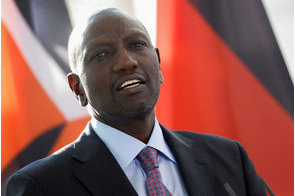Latest News
Africa's oil and gas industry outlook improves – PwC report

News Highlight
PwC said the oil and gas industry has restructured itself and become more competitive in operational performance.
PricewaterhouseCoopers (PwC), a professional services firm, has released its annual Africa Oil and Gas Review, showing a positive outlook for Africa’s oil and gas industry, despite difficult operating and economic conditions. The report, titled, "Taking on tomorrow: Africa oil & gas review," discusses current developments in the sector and provides a look into the future.
Released on Tuesday at the 25th Africa Oil Week conference, which held in Cape Town, the PwC's Africa Oil & Gas Review, 2018 highlights the digital transformation that has taken place in the industry globally and in Africa; the continent's total energy demand; and the role of National Oil Companies (NOCs) in designing strategies that will help the industry avoid potential pitfalls.
PwC said the oil and gas industry has restructured itself and become more competitive in operational performance. This is despite the difficulties in the sector, including the oil price crash not so long ago. As part of the ways the industry is optimising performance, oil companies are focusing on new ways of working, reducing costs and utilising new technology.
For instance, oil companies are using drones to inspect remote facilities, as well as robots to perform monitoring and safety checks. They are also using virtual reality to simulate the drilling of wells, thereby reducing drilling costs.
According to the report, Africa’s share of global oil production has slightly increased by 0.3 percent to 8.7 percent, standing at 8.1 million barrels per day (bbl/d). The main contributors are Nigeria, Angola, Algeria and Egypt. Libya also increased its production by 102.9 percent in 2017, placing it as the fourth-largest oil producer in Africa. As at the end of 2017, Africa's proven gas reserves were 487.8 trillion cubic feet (tcf), or 7.1 percent of global proven reserves.
By 2030, Africa’s total energy demand is projected to increase further by 60 percent, from 5.1 billion barrels of oil equivalent (boe) in 2014, accounting for 4 percent of the world’s total energy consumption.
According to the report, there has been a significant increase in the number and size of final investment decisions (FIDs) in 2018. Deepwater oil has been given preference over gas, and oil fields offering the highest rates of return are attracting investment. There is also a preference for brownfield over greenfield developments.
Despite the shot in the arm, the oil and gas industry still faces persistent challenges such as in talent shortages, regulatory uncertainty, political instability, corruption and fraud, and a lack of infrastructure.
“It is critical that the sector retains its capital discipline and adopts digital technologies if the hard-earned wins in cost savings are to be retained," said Chris Bredenhann, PwC’s Africa Oil and Gas Advisory Leader. "Progress in addressing corruption and improving corporate governance will also need to be maintained."
Related News
Latest Blogs
- AML/CFT regulations and data protection require balance in regulating cryptocurrency
- It's time for honest discussions on Nigeria's security architecture
- Driving economic growth through green transition in Nigeria
- CBN is fighting inflation instead of stagflation
- Why electricity privatization failed (2)
Most Popular News
- NDFF 2024 Conference to boost Nigeria’s blue and green economies
- IFC, partners back Indorama in Nigeria with $1.25 billion for fertiliser export
- CBN increases capital requirements of banks, gives 24 months for compliance
- CBN settles backlog of foreign exchange obligations
- Univercells signs MoU with FG on biopharmaceutical development in Nigeria
- Ali Pate to deliver keynote speech at NDFF 2024 Conference






